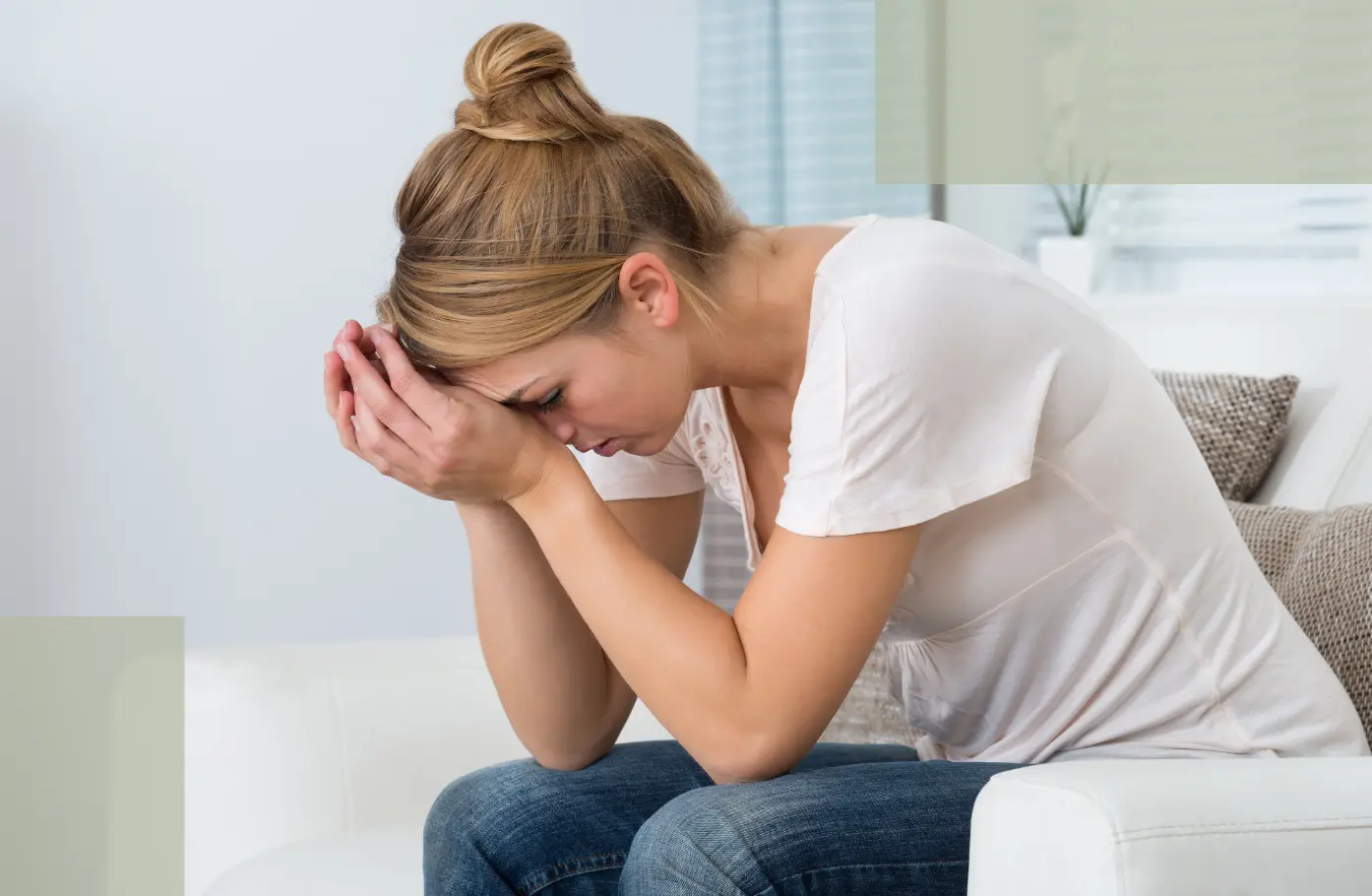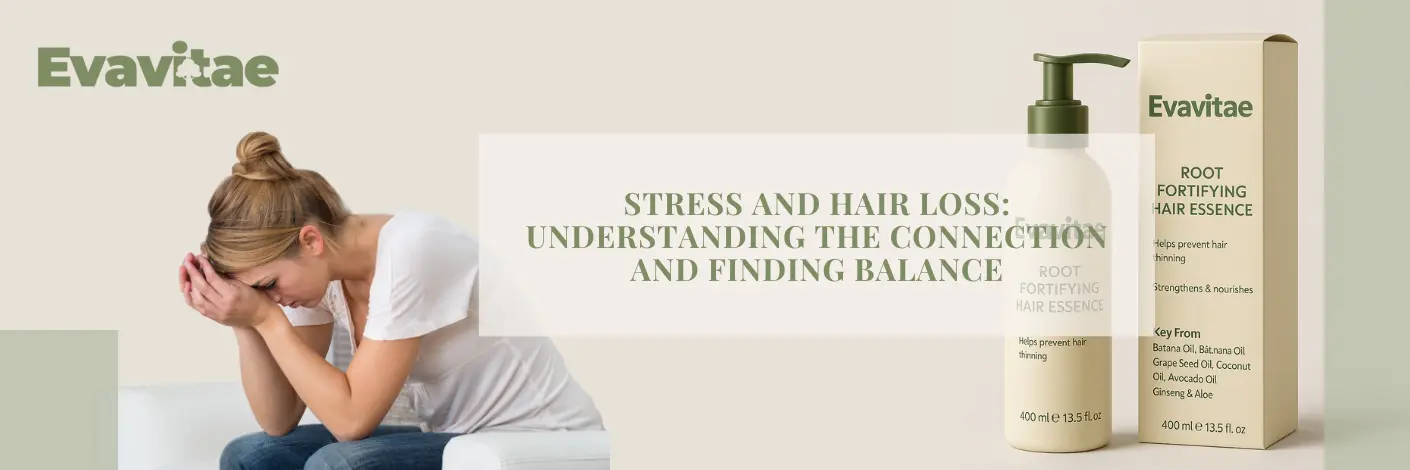
For many of us, stress feels like an unavoidable part of modern life. Between work, family responsibilities, and unexpected challenges, it’s not surprising that stress impacts our bodies in noticeable ways. But what might come as a shock is that stress can also affect your hair. If you’ve ever noticed increased shedding during a particularly stressful period, you’re not imagining it. Science shows that stress and hair loss are deeply connected.
This blog explores how stress influences the hair growth cycle, why some people are more vulnerable than others, and what practical steps can help restore balance.
The Science of Hair Growth
To understand how stress leads to shedding, it helps to know the basics of hair biology. Each hair follicle cycles through three main stages:
- Anagen (growth phase): Hair grows actively, lasting 2–7 years.
- Catagen (transition phase): A short resting stage before shedding begins.
- Telogen (resting phase): Hair detaches and eventually falls out, making room for new growth.
Under healthy conditions, about 85–90% of hairs remain in the growth phase at any time. But stress can disrupt this balance.
How Stress Triggers Hair Loss
There are three main conditions where stress plays a direct role:
- Telogen Effluvium (TE): The most common stress-related shedding. Physical or emotional stress can shock follicles into prematurely entering the resting phase, leading to diffuse shedding across the scalp. (Paus & Arck, 2009).
- Alopecia Areata: In this autoimmune condition, stress is considered a potential trigger that encourages the immune system to attack hair follicles.
- Trichotillomania: A behavioral condition where people cope with stress by pulling their own hair, often subconsciously.
Even short-term stress can increase shedding, but long-term, chronic stress is most disruptive.
Why Stress Affects Some People More
Not everyone experiencing stress will lose hair in the same way. Vulnerability depends on factors like:
- Genetics: Family history of alopecia or thinning hair.
- Hormones: Women may notice more stress-related shedding during postpartum recovery or menopause.
- Nutrition: Stress often alters eating patterns, reducing intake of nutrients vital for hair health (iron, zinc, vitamin D).
- Overall health: Conditions like thyroid imbalance or anemia amplify stress-related hair loss.
The Emotional Cycle
Unfortunately, hair loss itself can become a source of stress, creating a vicious cycle. People often describe feeling anxious about shedding, which in turn increases cortisol, the stress hormone. This feedback loop makes managing both stress and hair loss even more important.
Strategies to Support Hair and Scalp Health
1. Stress Management Techniques
- Mindfulness & Meditation: Evidence shows mindfulness practices reduce cortisol levels and improve coping (Khoury et al., 2015).
- Exercise: Physical activity lowers stress hormones and promotes circulation, which benefits the scalp.
- Sleep Hygiene: Quality sleep is crucial for hormone regulation and tissue repair.
2. Nutrition for Resilient Hair
Stress can deplete the body of essential nutrients. Supporting hair growth means focusing on:
- Iron-rich foods (spinach, legumes, lean meats)
- Zinc and biotin from nuts and seeds
- Vitamin D from safe sun exposure or supplements
3. Gentle Hair Care Practices
- Avoid harsh shampoos and over-styling.
- Use mild, scalp-friendly products(try Evavitae).
- Consider regular scalp massages to stimulate circulation.
4. Professional Guidance
If shedding persists beyond three months, or if you notice bald patches, consult a dermatologist or trichologist. Blood tests can rule out nutritional or hormonal causes.
Long-Term Hair Philosophy: Patience Over Panic
The truth is that hair doesn’t bounce back overnight. Regrowth typically takes months, and stress management is a marathon, not a sprint. That’s why many experts encourage a gentle and sustainable philosophy for hair care.
Instead of focusing on harsh “miracle cures,” brands like Evavitae emphasize creating a calm, healthy scalp environment where follicles can thrive over time. This long-term approach helps break the cycle of stress and panic, encouraging balance inside and out.
✨ Continue learning about prevention, early signs, and gentle recovery steps in the Hair Loss 101 Hub.
Get the full roadmap to postpartum hair regrowth inside our Postpartum Hair Care and Recovery Guide.
Key Takeaways
- Stress can trigger hair loss through telogen effluvium, alopecia areata, or behavioral habits.
- Nutritional deficiencies and chronic health conditions can worsen stress-related shedding.
- Managing stress, eating well, practicing gentle scalp care, and seeking professional guidance form the foundation of recovery.
- Sustainable, gentle philosophies for scalp care are more effective than chasing instant fixes.
References (APA Format)
Khoury, B., Sharma, M., Rush, S. E., & Fournier, C. (2015). Mindfulness-based stress reduction for healthy individuals: A meta-analysis. Journal of Psychosomatic Research, 78(6), 519–528. https://doi.org/10.1016/j.jpsychores.2015.03.009
Paus, R., & Arck, P. (2009). Neuroendocrine perspectives in alopecia areata: Hypothalamic–pituitary–adrenal axis involvement and stress. Experimental Dermatology, 18(1), 1–11. https://doi.org/10.1111/j.1600-0625.2008.00769.x
Randall, V. A. (2016). Hormonal regulation of hair follicles exhibits a biological paradox. Dermato-Endocrinology, 2(1), 81–89. https://doi.org/10.4161/derm.2.2.14459
Yap, C. A., & Sinclair, R. (2016). Telogen effluvium: A review. Australasian Journal of Dermatology, 57(4), 241–246. https://doi.org/10.1111/ajd.12407
Evavitae products are now available exclusively at www.evavitae.com.




Add comment
You must be logged in to post a comment.